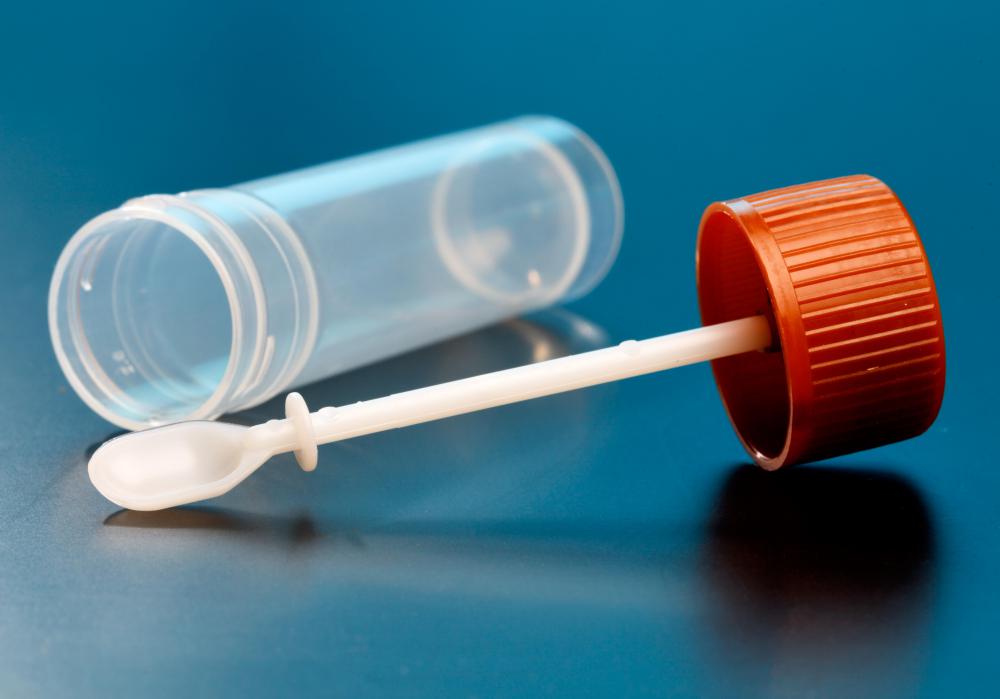At WiseGEEK, we're committed to delivering accurate, trustworthy information. Our expert-authored content is rigorously fact-checked and sourced from credible authorities. Discover how we uphold the highest standards in providing you with reliable knowledge.
What is a Clostridium Difficile Toxin?
Clostridium difficile is a type of bacteria, and a Clostridium difficile toxin is a substance produced by that bacteria which affects the lining of the gut, causing inflammation and damage. Infection with Clostridium difficile causes anything from mild diarrhea to a potentially fatal colon infection with fever, bloody diarrhea and the risk of a perforated intestine. There are different strains of the bacteria, and those which produce more Clostridium difficile toxin tend to cause more serious illness. A useful method of testing for the disease involves detecting the presence of Clostridium difficile toxin in a stool sample. Treatments for the condition range from nothing, in mild cases, to surgery if the colon, or large bowel, is in danger of perforating.
Many people have Clostridium difficile bacteria living in their intestines, but this is not normally a problem as the micro-organisms are kept in check by other strains of bacteria that exist in the healthy gut. When antibiotics are prescribed, these may kill off the normal bacterial population in the intestines, enabling Clostridium difficile, which is not usually harmed by antibiotics, to multiply. The bacteria may then cause a gut infection, producing toxins which create symptoms.

There are two different kinds of Clostridium difficile toxin, known as A and B, and these can be detected in a stool sample. This provides a quicker diagnosis than waiting for the bacteria in a stool sample to grow in order to identify them. Both of the toxins bind to cells in the gut lining and prevent them from functioning normally, causing injury and inflammation.

In some cases there is just a mild illness with fever, nausea, abdominal cramping and diarrhea of a watery nature. Typically, this may resolve on its own within a number of weeks. Alternatively, all that may be required is to stop taking any prescribed antibiotics to allow the normal gut bacteria, which inhibit Clostridium difficile, to increase again. More severe intestinal disease occurs in cases where large amounts of Clostridium difficile toxin are created, and a condition known as pseudomembranous colitis may arise.

Pseudomembranous colitis involves the colon becoming inflamed, and yellow patches appearing on the lining. Fever and pain in the abdomen are usually experienced, together with bloody diarrhea, and the colon may dilate. The treatment for this is generally a short course of one of the specific antibiotics known to affect Clostridium difficile, such as vancomycin.

There may be a need to replace fluid lost due to diarrhea, and this can be done via an intravenous drip or by feeding fluid into the stomach through a nasal tube. Surgery is carried out in rare cases, where there is a risk that the colon might perforate, to bypass or remove the damaged gut. Clostridium difficile infection can be prevented by good hygiene, to reduce the chance of infection from surroundings and other people, and by avoiding any unnecessary prescribing of antibiotics.
AS FEATURED ON:
AS FEATURED ON:














Discuss this Article
Post your comments